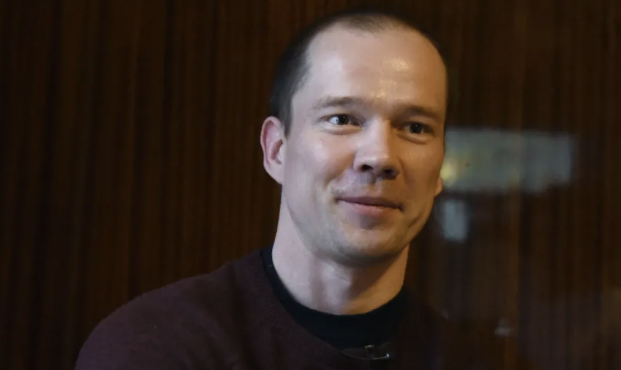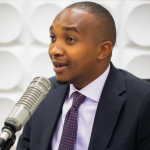Ildar Dadin, a prominent Russian opposition activist who fought alongside Kyiv in Ukraine, has reportedly been killed in action, according to the group that recruited him. A spokeswoman for the Civic Council, the group, confirmed his death, stating, “He was, and he remains a hero.”
Dadin was killed when the volunteer battalion he served with, the Freedom of Russia Legion, came under Russian artillery fire in the Kharkiv region of northeastern Ukraine. While the Legion has not released further details, citing ongoing military operations, Ilia Ponamarev, an exiled Russian opposition politician with past connections to the Legion, expressed his certainty of Dadin’s death, saying, “I am certain, alas, that Dadin is dead.”
Another source clarified that this had been “confirmed by those who were with him in battle.” As of now, messages sent to Dadin’s phone remain “unread.”
Dadin gained notoriety in Russia about a decade ago for his relentless efforts to stage peaceful protests amid increasing political repression. He was the first person prosecuted under a newly enacted Article 212.1, known as Dadin’s Law, which made it a criminal offense to commit repeat violations of Russia’s strict protest rules.
His violation simply involved standing on the streets of Moscow with a banner. After being sentenced to two and a half years, he was placed in a punishment cell and immediately began a hunger strike. During this time, he suffered torture at the hands of his prison guards to force him to comply.
Following his release in 2017, I met Dadin in Moscow, where he recounted the harrowing experience of being hung from a wall by his cuffed wrists while guards threatened him with rape. He admitted that the brutality nearly broke him.
When I learned earlier this year that he had joined a battalion of Russian volunteers fighting for Ukraine, I reached out to him again. He explained his decision to enlist, saying, “I can’t sit by and do nothing and so become an accomplice to Russian evil, to its crimes.”
Although he had always considered himself a pacifist, he listed his reasons for taking up arms: “The aggression, the mass killing, the torture, rape, and looting.” Despite this, he chose the callsign “Gandhi.”
Dadin felt a profound sense of personal responsibility for Russia’s full-scale invasion of Ukraine. He argued that he and his fellow Russians had failed to stop Vladimir Putin, allowing fear of police violence and the threat of imprisonment to silence them. “The main thing now is to act according to my conscience,” Dadin shared with me one night from near the frontline in Sumy.
He initially joined the Siberian Battalion in June 2023 before transferring to the Freedom of Russia Legion last winter, both of which are officially part of the Ukrainian Armed Forces. The recruits are primarily Russian citizens who believe that assisting Ukraine in defeating Putin is a crucial first step toward ending his rule in the Kremlin.
However, the exact number of recruits and their effectiveness as a fighting force remain unclear. They have claimed some successes, including a cross-border incursion into Russia earlier this year during Putin’s re-election campaign.
For Dadin, the experience wasn’t quite what he had envisioned. He felt that some of the missions assigned to his unit were “pointless” from a military perspective.
He recounted one battle where he found himself pinned down for eight hours in a bomb crater, enduring Russian fire while a drone attempted to drop a grenade on him, all the while witnessing a fellow volunteer bleed to death. Exhausted like many Ukrainian soldiers, he fought with barely any days off and limped from a wound to his hip.
I wondered if he might consider leaving, but Dadin made it clear that his conscience wouldn’t allow him to remain “on the sidelines.” He couldn’t turn away while Ukrainians were being killed “by Russian criminals.” “I tried to stop Russia—but did I do it? No,” he chastised himself in one of our last conversations. “And thousands of people have been killed because I did not do enough.”
Those who sent him to fight have a different view. “Ildar was strong, brave, principled, and honest,” the Civic Council stated. “That’s how we should remember him.”



